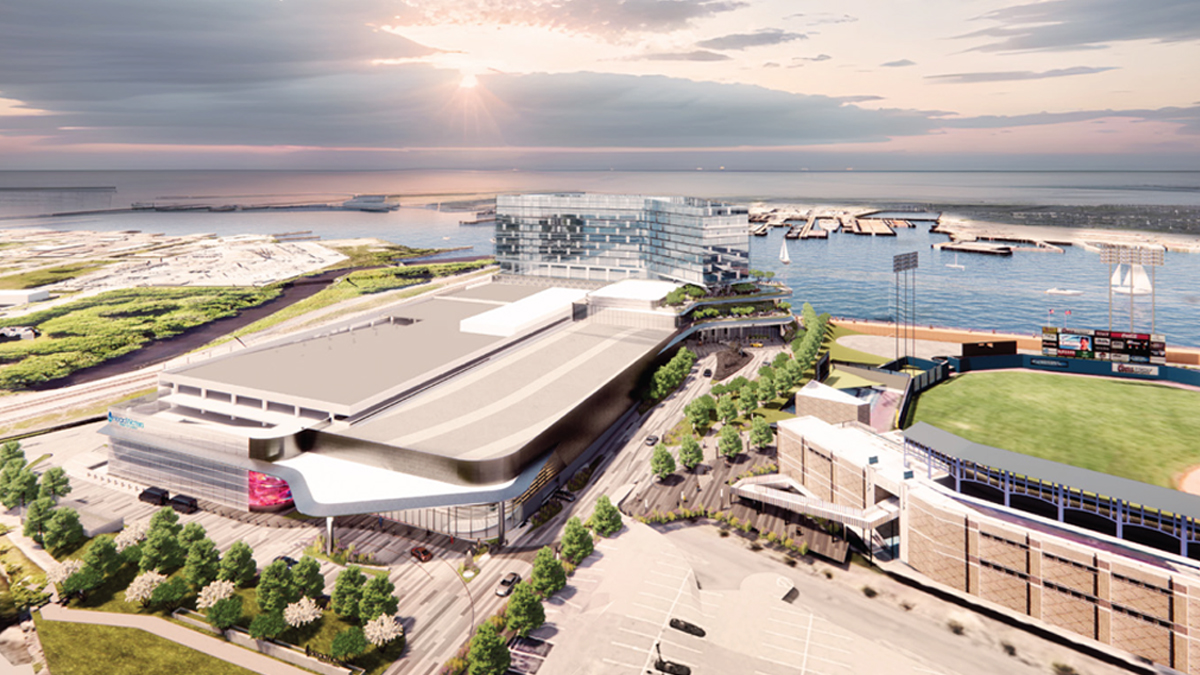The Pamunkey Indian Tribe was supposed to be well on its way to city approval and construction of its proposed HeadWaters Resort and Casino.
Instead, they’ve delayed approvals from city boards to work on additional design work to address the direction provided by City Council, spokesman Jay Smith said.
But he - and city leaders- won’t say what that direction is.
Mayor Kenny Alexander said in January he hadn’t seen the designs from the Pamunkey because they hadn’t reached the City Council level.
Alexander said he understands plans may have to change based on the federally-backed flood wall planned for Norfolk’s Elizabeth River shoreline.
The most recent designs - which were made public for city Architectural Review Board meetings before they were withdrawn - eliminated a marina that was depicted in previous versions of the casino project.
But Alexander also said the council will not accept anything less than the $500 million hotel-casino resort complex that voters approved in the 2020 referendum.
Councilman JP Paige, who represents the area where the casino would be located, declined to detail recent conversations council members have had with the tribe about the development.
Paige would say only “the citizens of Norfolk deserve the best.”
Delays and Deadlines
The latest series of delays comes after city leaders reportedly considered dropping the tribe in favor of another developer last year - in part due to an unexplained lack of progress. (Alexander has denied this.)
Last summer, the tribe submitted a two-phase proposal to first build the casino itself and the hotel later.
That plan was withdrawn and reworked over objections from the city that it wouldn’t accept a multi-phase project.
Revised plans for a 65,000 square-foot casino and 300-room hotel next to Harbor Park were submitted in December but pulled twice by the tribe ahead of city meetings in January.
Since then, no new designs have materialized, more than five years after the tribe’s plans for a casino were first announced.
After the Pamunkey Indian Tribe earned federal recognition in 2017, it announced in 2018 it would build a casino. The tribe said it was looking at Norfolk for the site.
The General Assembly responded in 2019 by opening the door for four cities to host commercial casinos, including the tribe’s casino in Norfolk.
But the Pamunkey project has fallen far behind its competitors.
Across the water, Rivers Casino Portsmouth just celebrated a year of operation. The state’s first permanent casino, it raked in $250 million in revenue while the city of Portsmouth netted $15 million in taxes.
Gambling’s been ongoing in Danville and Bristol, where operators there opened temporary facilities while they finish building their permanent casinos. Both are slated to open later this year.
In Norfolk, the Pamunkey Tribe still hasn’t gotten the most basic approvals of its plans.
The application needs to go through the city’s Architectural Review Board and its Planning Commission before it reaches the City Council for final approval. The process could take anywhere from a few weeks to a few months
When WHRO asked how the continuing delays would affect the construction timeline and the application for the casino’s state license, casino spokesman Smith declined to answer.
Smith told the Virginian-Pilot in December the tribe would need to start construction this spring to “meet our statutory requirement of opening game operations by November 2025.”
However, the only statutory timeline the tribe is under right now is to obtain its casino license from the state’s Lottery Board. If it can’t do that before November 2025, the results of the 2020 referendum would be null and void.
Another referendum would have to be scheduled and approved before any development could move forward.
To get that critical state casino license, the tribe has to show it’s invested $300 million in the development of the casino - which the Tribe seemingly won’t be able to do until it’s purchased the property from the city and started construction.
But the city won’t sell the land next to Harbor Park to the tribe until the development plans have been approved by City Council.
There’s no requirement in state law to get gaming operations up and running within a certain time frame after the license is issued.
Smith told the Pilot in December that even if the casino opens in November 2025, all the promised tables and slots wouldn’t be up and running on day one.
Only about half of what’s currently planned would be available initially, he said, and construction of the planned hotel would stretch into 2026.





